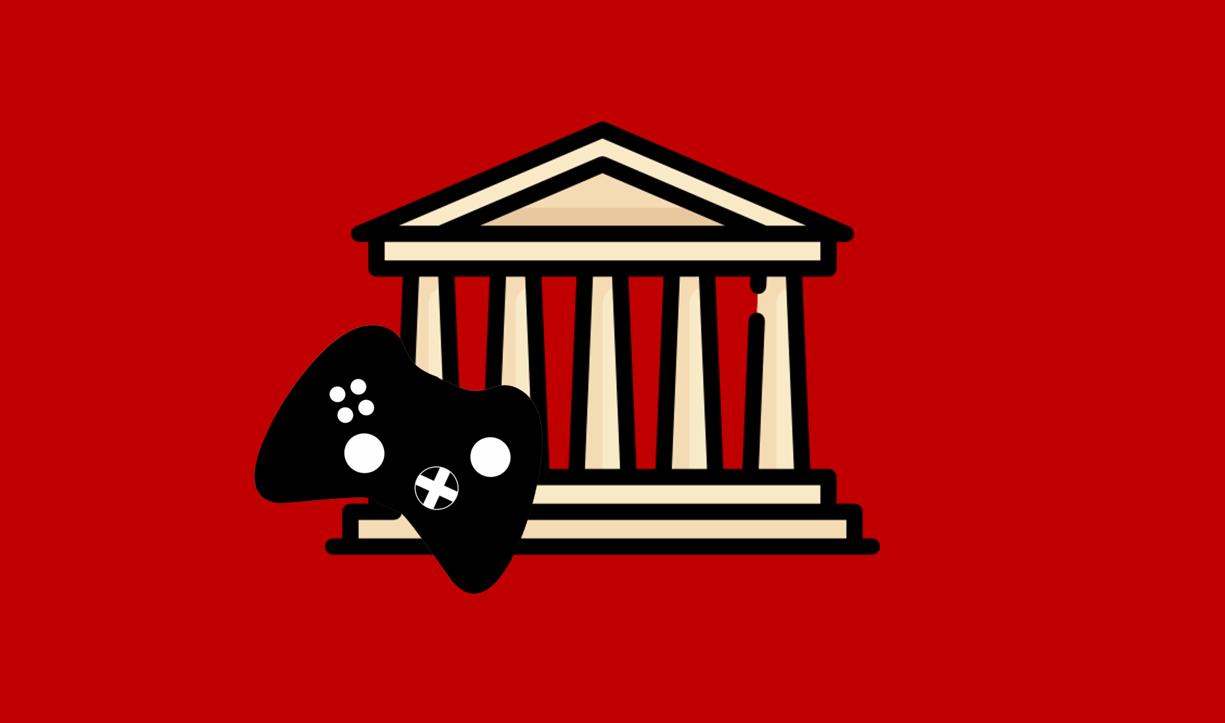
As one of the more recurrent projects supported by the Bristol Digital Game Lab, Antiquity Games Night, co-ordinated by Dr Richard Cole (Bristol) and Dr Alexander Vandewalle (Ghent), very much merits a retrospective. For going on two years, the pair have been organizing monthly online play-throughs of games inspired by the history and mythology of the ancient world. Not merely a monthly meet-up, AGN operates out of an active Discord server, where a community has steadily formed, discussing new games, academic opportunities, and much more. The monthly nights forego the single-player games conventionally associated with historical game studies and instead focus on multiplayer games, with sessions on arena battles in Ryse: Son of Rome, co-operative playthroughs of Dawn of Defiance and PvP skirmishes in Age of Empires 2.
In preparing this post, I spoke to several attendees of AGNs. Certain elements repeatedly re-occurred in these conversations as to the benefits incurred via participation. One pre-eminent benefit was that of community and sociality. For Edward Hammond, a PhD student in Classics and Ancient History (Bristol), AGN offered a means to connect to scholars both at the University of Bristol and further afield. In conversation with Julie Levy, currently managing director of the Save Ancient Studies Alliance, attention was drawn to how their involvement with AGN allowed them to remain active within the academic world despite not having institutional support and the ready ability to travel for conferences. And finally, when discussing the group with Leandro Wallace, a PhD student at Macquarie University, the sense of AGN’s playful, dynamic atmosphere came to the fore, as distinct from the sometimes inhibited social environment of conferences and formal academia.
Several further advantages were highlighted. All of the interviewees mentioned how both the AGNs themselves and the Discord server generated exposure to games they were either totally unfamiliar with or did not have access to. Leandro and Julie both pointed out how isolated individuals’ experience of doctoral study can be, and how AGN offered a means by which to remain engaged with one’s vocation in a spirit of communal enjoyment.
Edward emphasised the breadth of expertise any meeting of the AGN might proffer. Attendees often possess specialist knowledge that can recontextualise or deepen the game then being played. The casual ambience of the nights also allows for a more experimental manner of exchanging ideas and knowledge, permitting participants to work through inchoate ideas in an encouraging format.
A particularly salient point was how the experience of collective play altered attentivity to certain elements of play. Discursivity is central to AGN (though, like play itself, never compulsory) and Edward found that particular elements of certain games struck the group as they played, generating conversations on player perception itself. Comparably, given the breadth of expertise mentioned above, interviewees mentioned how readily new conceptions of games are stimulated via the environment of play shifting from independence to collectivity.
As a final boon, Julie pointed to how they had come to participate in a number of further archaeogaming groups because of social links created via the AGN Discord. It should be said then conclusively that the AGNs are not simply an iteration on the monthly reading group. Rather, it is an environment for people to develop friendships, professional connections, and discover a relaxed domain where silliness and intellectual curiosity co-exist integrally.
The group can be joined via https://discord.gg/h2XPtJfGut. No experience required. The Game Lab hopes to see you there soon!
